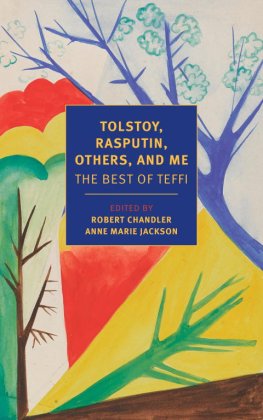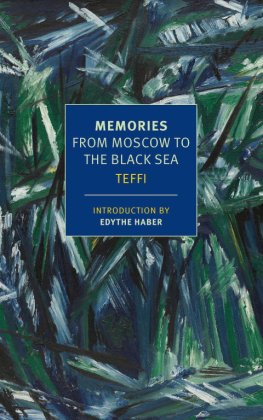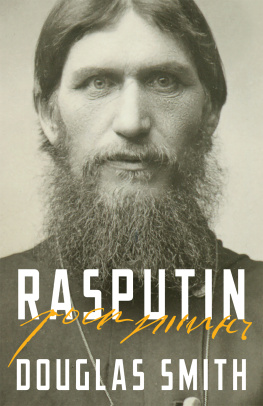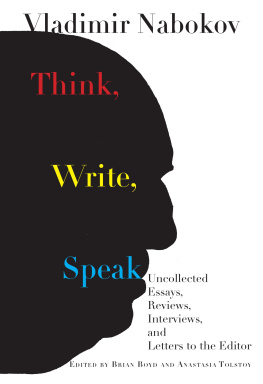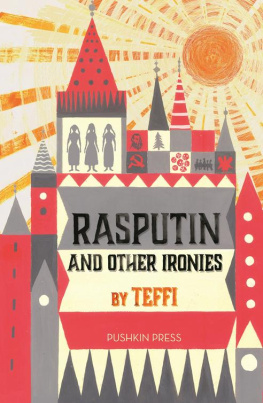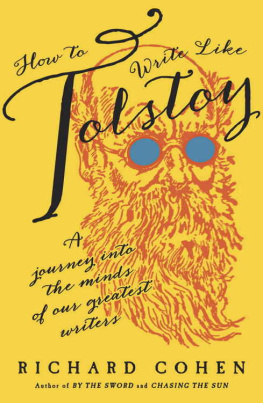Teffi
TOLSTOY, RASPUTIN, OTHERS, AND ME
THE BEST OF TEFFI
Edited by
Robert Chandler and Anne Marie Jackson
Translated from the Russian by
Robert and Elizabeth Chandler,
Rose France, and Anne Marie Jackson
INTRODUCTION
Teffi the Fool
Teffi was a writer of astonishing, fearless intelligence. There was little, if anything, that she did not see through. No other writer, for example, has evoked the plight of the White refugees from Sovietdom as vividly, and with such insight, as Teffi in The Gadarene Swine. In this article, probably her penultimate publication on Russian soil, Teffi lets slip her mask of light humoristand the result is terrifying. The Gadarene Swine was published in Odessa in March 1919, just over a month before the Whites evacuated the city, and it was not republished until 2006. It is hard to imagine any migr journal intrepid enough to republish anything so mercilessly critical of the Whites.
Teffi was secretive and self-protective. She consistently lied about when she was born, shaving thirteen years off her age. She wrote a substantial amount of apparently autobiographical work, but without ever mentioning several of the most important events of her life. She does not tell us that a jealous admirer shot, and nearly killed, one of her lovers. Nor does she mention her second marriage, nor does she ever speak, even obliquely, of the infant son whom she abandoned when she left her husband to return to Petersburg and begin her career as a writer. All this, of course, is entirely understandable. If it surprises us, it is only because Teffi creates such a powerful illusion, when she writes in the first person, that she is chatting away entirely freely and spontaneously.
Teffis most important act of self-protection, however, was her adoption of the mask of a fool. Had she written many articles in the vein of The Gadarene Swine, she would have had few friends and few readers. She understood that intelligence as sharp as hers can be frightening, and, like a Shakespearean fool, she found a way to smuggle her insights into the public world without getting herself executed or lynched. She did this with remarkable skill; she was a true juggler, a tumbler. While in Russia, she wrote exclusively for the liberal press yet was the favourite writer of the last tsaras well as being admired by Lenin. And many of the sketches she published as an migre in Paris were reprinted, without her permission, in Soviet Russia. Few Russian writers of the time were able to cross so many boundaries.
Teffi knew what she was about. In My Pseudonym she tells us that she chose as her pseudonym the name of a fool whom she knewbecause fools are lucky. This was at a time when pseudonyms were used more often than they are today. But as she herself reminds us, other writers chose names with an obvious messagelike Maxim Gorky, that is, Maxim the Bitter. Or, like Anna Andreyevna Akhmatova, they chose names with a dramatic ring. No other major writer chose a name as silly as Teffi.
There were times when Teffi seems to have resented that she had come to be seen exclusively as a comic writer. As early as 1916 she was insisting on the tragic element in her work. And yet she may also have felt that, in order to be able to write at all, she had to pretendto herself as well as to othersthat her writing was nothing so very serious. There is a striking similarity between her account, in My Pseudonym, of the first night of the very first of her plays to be staged, and her account, in MemoriesFrom Moscow to the Black Sea, of the last time she attended a performance of her own work on Russian soil. Both accounts end with a description of an enthusiastic audience calling for the author to take her bow and Teffi being unable, or somehow strangely reluctant, to accept the tribute that was her due. It is as if she felt that she might be unable to write at all if she took herself too seriously, that it was better to pretend that her work simply wrote itself.
Teffis mask served her well. She survived the Russian Civil War, the difficulties of life as an migre, and the German occupation of France. She lived to be eighty, continuing to write until her last months. But it is time we reassessed her work, without preconceptions. She is always perceptively witty and she wrote thoughtfully about the power of laughterbut she is not the light humorist that Russians and Russianists still sometimes imagine her to be.
In this volume we present not just one other Teffi, but several. Her range of both tone and subject matter is astonishing. She evokes the inner world of children with as much insight as any writer I know. Love is a masterpiece of poetic, modernist prose. She wrote poetry throughout her career and, like several of the very greatest Russian prose writersAlexander Pushkin, Ivan Bunin, Andrei Platonov and Varlam Shalamov among themshe unobtrusively brings to her prose all that she had learnt as a poet. And her portraits of such figures as Lenin and Rasputin are unforgettable.
Robert ChandlerJanuary 2016Teffis account of her unplanned emigration from Russia, published in English as MemoriesFrom Moscow to the Black Sea, is often seen as her masterpiece. Gathered here is a selection of her shorter reminiscences, ranging from her childhood in 1870s Russia to the Nazi occupation of France in the 1940s.
After she left Russia in 1919, Teffis longing for that lost world led her to turn to the past in much of her writing. As she puts it in her 1927 collection, The Small Town (Gorodok):
Our way of life in our ruined Atlantis [] is fading from memory. [] From time to time the sea seems to toss out an unexpected shard, scrap, fragment from this world, this world submerged and lost for evermore, and you begin to examine it with sadness and tenderness, and you remember what the shard used to be like, the whole it was once part of, its role in lifewhether to serve, teach, or simply entertain and delight.
And always a shard like this will hook onto your soul and pull it back into the past.
Teffi may also have looked to the past because she felt, as her biographer Edythe Haber describes it, unable to penetrate the inner life of the French. In a feuilleton in the migr newspaper Vozrozhdenie, Teffi wrote that she would never be able to speak, think and act on behalf of a French person the way she could on behalf of a Russian.
The first section of this collection, How I Live and Work, affords us a few glimpses of Teffis life as a writer. The pieces in the second section, Staging Posts mostly written in the 1920s show us something of Teffis personal life, from childhood and adolescence through to motherhood, emigration and life in Paris. Staging Posts itself, the most clearly fictionalized of these writings, alludes to a real episode that also figures in Memories, the death of her beloved younger sister Lena; and The White Flower evokes Teffis first years as an migre.
Most of the accounts in the final two sections of this volumeHeady Days: Revolutions and Civil War and Artists and Writers Rememberedcome from My Chronicle, Teffis final collection, unpublished during her lifetime. In her preface, Teffi wrote that many interesting people had passed through her life and that her intention was to show them simply as real people, since few others were likely to portray them this way. We Are Still Living and The Gadarene Swine were written at the time of the events they describe. The former dates to 1918, before Teffi had left the city she would always call Petersburg, even though after the outbreak of the First World War it had officially been given the more Slavic name of Petrograd, and the latter to the Russian Civil War, when Teffi was rolling her way down the map, along with thousands of others, before leaving Russia forever.

